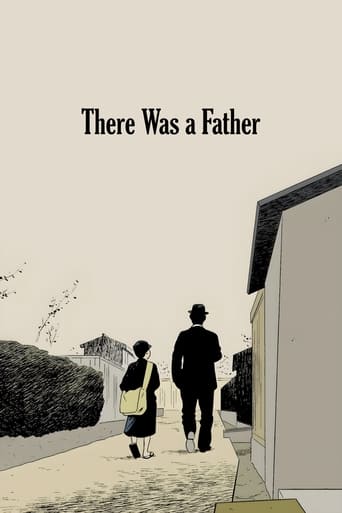WILLIAM FLANIGAN
Viewed on DVD. Restoration = one (1) star. The most deficient (or close thereto) Japanese movie to have survived from the 1940's and, perhaps, the most mediocre (or close thereto) surviving Japanese film from the first half of the 20th Century! Using the standard "restoration profitability early warning system," the opening credits are just starting when it becomes obvious that the restoration label holds the film per Se and, hence, its commercial prospects in low regard and, accordingly, did not spend more than token resources (if that) to restore it. (Aside from possible test marketing, one has to wonder why this movie was even added to the label's video disc catalog!) The plot is thread bare and almost as old as the known universe (yet again we have one generation sacrificing just about everything for the benefit of the next one) and poorly written/developed. Further, the film lacks implementation skill in general and disciplined direction in particular. Actors deliver dull line readings while appearing disinterested with the entire undertaking (perhaps their thoughts were elsewhere like on being drafted in the midst of WWII?). Frequent use of "back acting" (photographing the actor's back while lines are delivered) actually serves to lower rather than compound the monotony! Quality of camera work and sound recording are just about impossible to judge given the submarginal quality of the original source material. Viewers (including native Japanese speakers) may become dependent on subtitles when trying to understand what is taking place on the screen. The extensive use of Western Japanese dialect(s) is a challenge. But the poor quality of the original voice recordings, mumbled deliveries, pronounced transfer/duplication artifacts, and substantial age-related audio deterioration render the dialog all but incomprehensible throughout the film. (Whomever authored the subtitles has a "golden ear" if the subtitles were based exclusively on what one hears (or does not hear--which is more often the case) on this video disc!) Keep your distance from this disaster! WILLIAM FLANIGAN, PhD.
crossbow0106
Being a fan of Ozu, you see here all the elements of his film making: The long shots, the trains, the interaction of family members etc. Kind of a precursor to the superior "Late Spring", this story revolves around a father and son's relationship. He works hard to get his son through school, so he can have a better life. However, they are not in the same place, so they do not see each other all that often. The film spans several years, in which the son goes from a young boy to a man. Chishu Ryu, who has starred in many Ozu films, is the father. Of course, he is great, he always is. Since the mother passed before the film even started, the boy only has the father, and their relationship is the heart of this film. A good to almost very good film, it was shown, appropriately enough, on Fathers Day on Turner Classic Movies. If you like Ozu, you'll want to see this. If you're new to him, check out the films with Chishu Ryu and Setsuko Hara, as well as his swan song "Autumn Afternoon" and even "I Was Born, But" before watching this. I liked it, it was a nice film. Its another worthy Ozu film, in a career that had so many of them.
rschmeec
Whether the father is a "good father" is questionable. We first see him abandoning a career as a schoolteacher, for which he seems eminently fitted, because he is unwilling to accept responsibility. This tendency is amplified as he separates from the son, presumably for the son's sake, but this can be interpreted as another abandonment of responsibility.The son is portrayed as suffering deeply because of the separation, and this emotional pain is repeated in several scenes in which they are together again for short periods of time.As the movie progresses, the son is portrayed as larger than the father, often filling the screen in interiors that have a very low ceiling. The son is always dutiful, (in contrast to the two students at the beginning of the movie); the father continually urges the son to work hard, to give it all he has, in order to get ahead. But the father appears pathetic in his subordinate clerical position; his emphasis on "giving it all one has" is countered by the son's simple desire to be with the father. Human relations trump the value of hard work.
Daryl Chin (lqualls-dchin)
Most of the films of Yasujiro Ozu take a very restricted time period: a few days at the most. "There Was a Father" is unusual in that the time span is actually quite long: it stretches over a number of years (this is also the case with "The Only Son"), as it chronicles the relationship of a widower with his son. The father, a schoolteacher (played by Chishu Ryu), struggles to make sure that his son has advantages that he never had; in this case, the son is appreciative of all that the father has done, and the relationship is one of the most heartwarming of all familial relationships in Ozu's work. "There Was a Father" represents one of the most beautiful depictions of a good parent in all of world cinema.




